Some Like It Hot (1959)
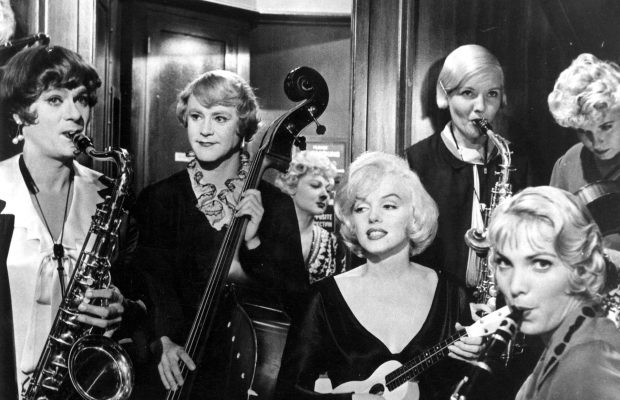
Toronto Film Society presented Some Like It Hot (1959) on Sunday, April 6, 1986 in a double bill with Scarface as part of the Season 38 Sunday Afternoon Film Buffs Series “A”, Programme 9.
Production Company: A Mirisch Co. presentation of an Ashton production released through United Artists. Producer and Director: Billy Wilder. Screenplay: Billy Wilder and I.A.L. Diamond, suggeted by a story by R. Thoeren and M. Logan. Cinematography: Charles Lang. Background Score: Adolph Deutsch. Songs supervised by Matty Melneck. Editor: Arthur Scmidt.
Cast: Marilyn Monroe (Sugar Kane), Tony Curtis (Joe), Jack Lemmon (Jerry), George Raft (Spats), Pat O’Brien (Mulligan), Joe E. Brown (Osgood), Nehemiah Persoff (Bonaparte), Joan Shawlee (Sue), Billy Gray (Poliakoff), George E. Stone (Toothpick), Dave Barry (Beinstock), Mike Mazurki, Harry Wilson (Spats’ Henchman), Beverley Wills (Dolores), Barbara Drew (Nellie), Edward G. Robinson, Jr. (Paradise).
Billy Wilder is one of the most successful directors in Hollywood history–his two dozen or so movies have estimated total receipts of over $200 million. He has been nominated for 21 Academy Awards and has won six–as a producer, a director (twice), and a writer (three times). Almost the only post-war American director to favour comedy as a genre, Wilder’s brand of comedy was typically cynical and abrasive, taking a savage delight in exposing human venality. He was, in fact, one of the earliest practitioners of black comedy.
Born in Vienna in 1906, Wilder spent his early youth in Germany until Hitler’s rise to power forced him to flee to America in 1933. For years he struggled to make a living as a scriptwriter in Hollywood, sharing an apartment with another expatriate down on his luck, Peter Lorre. In 1938, he was hired by Lubitsch to work on the script for Bluebeard’s Eighth Wife. Lubitsch recognized his talent and kept him on. Wilder grew increasingly impatient, however, with the way directors altered his scripts and finally moved into directing himself to prevent this.
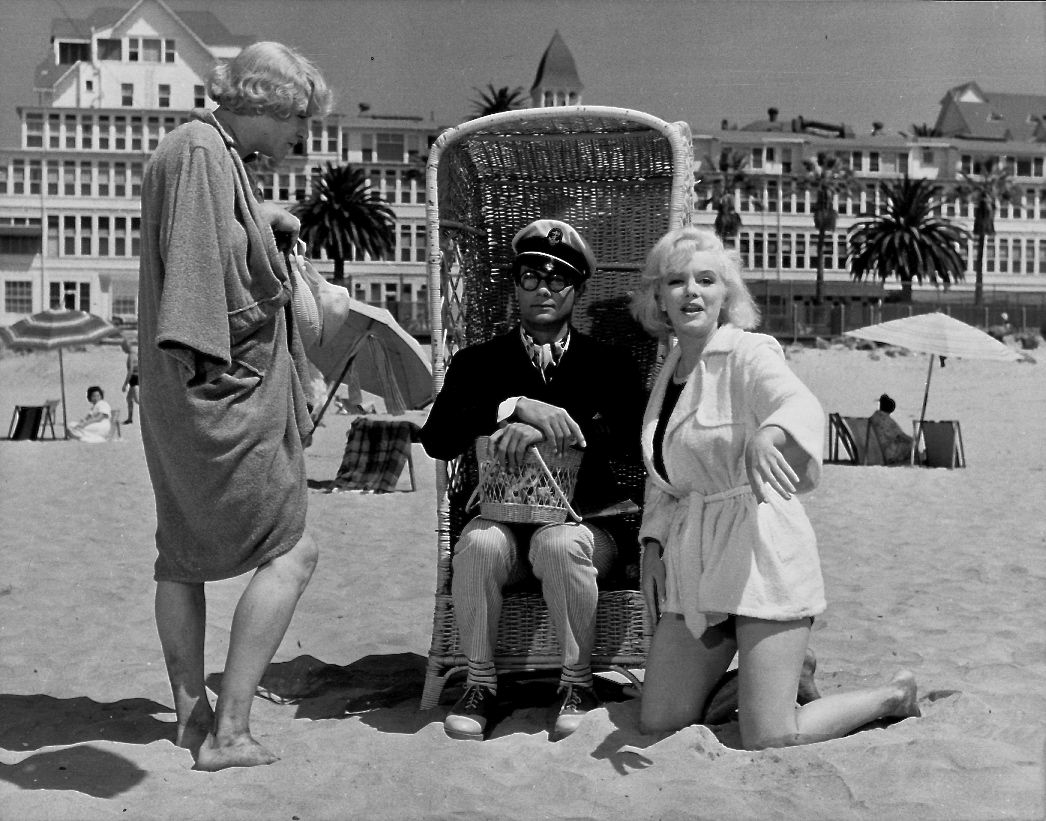
Wilder always wrote his scripts with a co-scenarist, whose main function was to balance or eliminate his more off-beat ideas. He was a notoriously difficult man to write a script with, however. “Billy has to take over your whole life,” said Ernest Lehman. “You don’t just collaborate on a script with him. He has to change what you wear and what you eat.” Harry Kurnitz claimed that “Billy Wilder at work is actually two people–Mr. Hyde and Mr. Hyde.” Kurnitz added that all Wilder’s co-scenarists “have a hunted look, shuffle nervously, and have been known to break into tears if a door slams anywhere in the same building.” I.A.L. Diamond, his co-scenarist on Some Like It Hot, is the only one to have worked with him repeatedly without obvious difficulty.
The bounding comedy spirit of Some Like It Hot and its enormous critical and box-office success have served to obscure its history as a troubled production. Difficulties began when Wilder insisted on making the film in black-and -white rather than color, preferring the subtler effects achieved by the former to the eye-catching qualities of the latter. The distributor objected and Wilder ultimately had to find another. His troubles were far from over, however, for Marilyn Monroe’s drug and alcohol dependency made her late for every day’s shooting and necessitated constant re-takes. A scene where she had only one line (“Where’s that bourbon?”) had to be done 49 times until she got it right. naturally, her co-stars became tired and give poorer performances but Wilder felt he had to go with the later takes because, as he put it, “you have to go with Monroe, even if other actors suffer, because when Monroe is on the screen the audience cannot keep their eyes off her.” When someone in the preview audience told Tony Curtis he really looked as if he enjoyed kissing Marilyn Monroe, he growled back: “It’s like kissing Hitler.” The film ran six weeks over time and a million over budge. In 1968, Wilder gave his final assessment of Monroe: “I am appalled by this Marilyn Monroe cult. Perhaps it’s getting to be an act of courage to say the truth about her. Well, let me be courageous. I have never met anyone as utterly mean as Marilyn Monroe. Nor as utterly fabulous on the screen, and that includes Garbo.”
Notes by Laurie McNeice

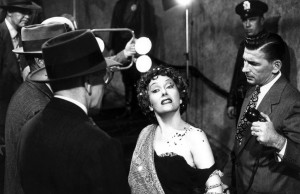
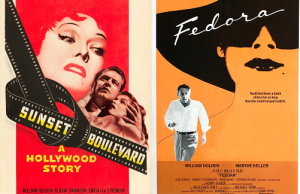
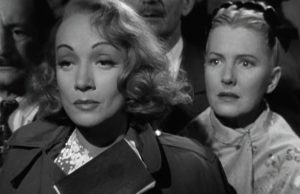






Leave a Reply